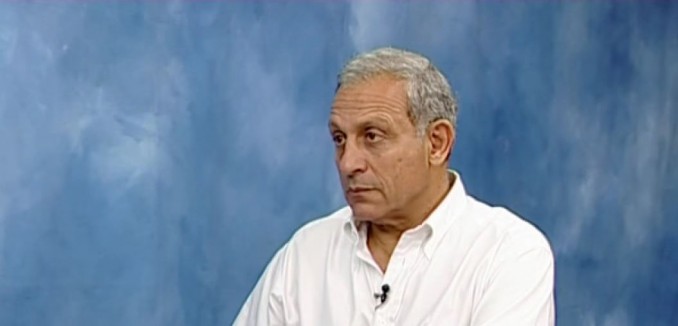The former commander of the Israeli Air Force has warned that it will be one or two years before the full implications of a deal with Iran over its nuclear program are properly understood.
“If we don’t see a violation the day after any deal is agreed, that doesn’t mean the Iranians will keep their side of the bargain,” Maj. Gen. Eitan Ben Eliyahu told The Tower in an exclusive interview. “The most crucial time is one or two years after. Before then, the regime will be accepted in a friendly way by the international community. It will establish renewed economic relations with Europe, the U.S., Russia, China, and so on, and it needs one or two years to make sure that these relations will be solid.”
Before stepping down as IAF commander in 2000, Ben Eliyahu, whose father immigrated from Iran to Israel, enjoyed a long and distinguished military career that included service during the 1973 Yom Kippur War, when he commanded a squadron of F-4 jets against the Soviet-backed Egyptian air force. Arguably the highlight of his career came in 1981, when he participated in the Israeli bombing of the Osirak nuclear reactor built, with French assistance, by Saddam Hussein’s regime in Iraq.
Ben Eliyahu noted with irony that the Osirak operation was carried out by American-built F-16 jets that were initially intended for Iran, before the 1979 Islamist takeover led Washington to cancel the delivery and redirect the fighter planes to Israel. “We got the F-16s two years earlier than we’d expected, which changed our entire plan,” he said.
At the same time, he was cautious not to draw parallels between Iraq’s nuclear program and that of Iran. “Saddam was 100 per cent dependent on French scientists,” Ben Eliyahu said. “The Iranians have their own operation.”
That operation, he added, is geared towards the production of a nuclear weapon. “The facts are that the Iranians put a lot of effort into their nuclear infrastructure,” Ben Eliyahu said. “They enrich uranium, they have a plutonium reactor, they are engaged in research and development – they do everything that’s needed for a bomb.”
For that reason, Ben Eliyahu recommended a different negotiating strategy, in order to achieve the international community’s declared aim of preventing Iran from weaponizing its nuclear program. “We’ve been working with a concept that begins with negotiation,” he said. “If that doesn’t work, then you apply diplomatic pressure, and then sanctions, until you get to the military option, which we’ve been told is ‘always on the table.'”
Rather than proceeding in this sequential manner, Ben Eliyahu said, all options have to be visible during the negotiations. “The military option has to be part of the negotiations, as sanctions have been,” he said. “During the Cuban missile crisis, President Kennedy imposed a blockade against Cuba, you had overflights, you had 200,000 soldiers ready to deploy on the coast of Florida. At the same time, Kennedy was negotiating with the Soviets, and the military option was part of the negotiations. In the Iranian case, a similar approach is needed.”
Ben Eliyahu reinforced this last point when asked about former Prime Minister Ehud Barak’s recent claim that it would take “a fraction of one night” to destroy Iran’s nuclear program. “Barak’s message, as I interpreted it, was about the importance of being decisive, of having a coalition led by the United States that doesn’t hesitate. I didn’t think the claim about one night was Barak’s core message. The core message was that the military option is practical.”
If the current negotiating framework remains intact, Ben Eliyahu believes that the Iranians will agree to a final deal, as their immediate interest lies in the removal of sanctions. “You have to remember, they are not in a rush,” he said, as he observed that Iran’s nuclear program predates the Islamist revolution. “So if they have to wait another ten years, it’s not a big deal. As long as they can keep their breakout threshold, they will sign.”
Maj. Gen. Ben Eliyahu spoke with The Tower during a visit to New York on behalf of Beit Hatfutsot, the Museum of the Jewish People in Tel Aviv, where he serves as co-chair of the Board of Governors.
[Photo: Arutz 66 / YouTube]




